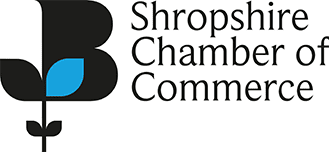Shropshire Chamber of Commerce is calling for urgent action to improve trade connection with Europe, as the UK marks the second anniversary of Brexit.
Well over half of the exporters surveyed by the British Chambers of Commerce (BCC) at the end of last year reported ongoing delays and difficulties in trading with the European Union.
Ruth Ross, Shropshire Chamber’s director of business, said it was clear that urgent action was needed.
“Over the past few days we have seen pictures of huge lorry queues at Dover, which appear to be largely caused by the complex and confusing system for exporting food products across the Channel,” she said.
“It seems that Governments on either side of the water are interpreting the post-Brexit trade arrangements differently – leaving innocent businesses caught in the middle.
“The Chamber network is hearing stories of French customs officials requiring a ‘wet’ signature on paperwork for exports of animal and plant products, but much of the documentation is produced digitally.”
Ruth added: “We support the UK Government’s ambition to massively increase the number of firms exporting, but this can only happen if we free up the flow of goods and services into our largest and nearest overseas market.
“Currently, the way the trade agreement is being interpreted in 27 different EU countries is a major headache for many Shropshire companies – especially smaller firms without the cash reserves to set up their own new EU-based arrangements.”
Shropshire Chamber says it has seen a big increase in the number of local businesses seeking help to navigate the complexities of international trade, through its Chamber Customs service.
Ruth said: “It means that we know first-hand about the difficulties firms on the ground are facing.”
Shropshire Chamber is backing the BCC’s five key issues, and the solutions it says are needed, to improve EU trade. They are:
- Export health certificates cost too much and take up too much time for SME food exporters - a supplementary deal is needed which either eliminates or greatly reduces the complexity of exporting food for SMEs.
- Some companies are being asked to register in multiple EU states for VAT to sell online to customers there. A supplementary deal, similar to Norway’s with the EU, should exempt the smallest firms from the requirement to have a fiscal representative and incur these duplicate costs.
- As things stand CE marked industrial and electrical products will not be permitted for sale on the market in Great Britain from January 2023/4. The same is true for components and spares. Action from the Government is needed to help businesses with these timelines.
- UK firms are facing limitations on business travel and work activities in the EU, and the Government needs to make side deals with the EU and member states to boost access in this area a priority for 2022.
- Companies starting to be pursued in respect of import customs declarations deferred from last year. A pragmatic approach to enforcement is needed to ensure companies recovering from the pandemic do not face heavy-handed demands too quickly on import payments, or paperwork.
Shropshire Chamber of Commerce is looking to celebrate the county’s international trade achievements in its annual Business Awards, which are returning this summer.
Entries are now open for the International Trade award, where companies are asked to show how they are overcoming barriers such as language, Covid or Brexit
All the details can be found at www.shropshirechamberbusinessawards.com












Latest News